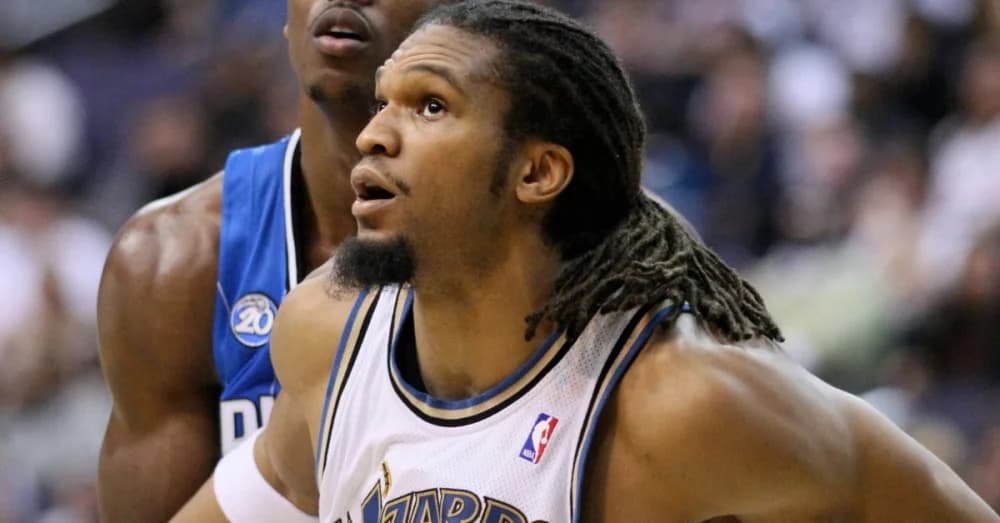Etan Thomas Sparks Debate: Are Athletes Held to Different Standards for Political Expression?

In a bold statement that has sparked conversation across social media, former NBA player Etan Thomas is drawing attention to the hypocrisy surrounding athlete activism in the wake of Nick Bosa’s recent MAGA hat stunt. Etan Thomas sparks debate over double standards in societal reactions to athletes’ political expressions and activism. As he highlights the glaring inconsistencies in public perception, the discourse surrounding athlete activism becomes increasingly relevant.
Etan Thomas took to X, formerly known as Twitter, to express his discontent with the contrasting public reactions to Colin Kaepernick’s kneeling protest in 2016 and Bosa’s recent MAGA hat display. In his post, he pointedly noted that those who condemned Kaepernick’s silent protest against racial injustice were now praising Bosa for his display of support for former President Donald Trump. “If you were outraged when Kaepernick took a knee, told him to stay in his place, screamed he should never play in the NFL again, etc., but are praising Nick Bosa for having the courage to use his platform as an athlete to stand up for what he believes in… YOU ARE A HYPOCRITE,” Thomas stated, underscoring the inconsistencies in how society views different forms of protest.
If you were outraged when Kaepernick took a knee, told him to stay in his place, screamed he should never play in the NFL again etc etc but are praising Nick Bosa for having the courage to use his platform as an athlete to stand up for what he believes in….
YOU ARE A HYPOCRITE pic.twitter.com/JjrK5YQiKI— Etan Thomas (@etanthomas36) October 28, 2024
Bosa made headlines during a postgame interview after the San Francisco 49ers’ victory over the Dallas Cowboys when he donned a MAGA hat. His actions drew immediate media scrutiny, especially given the history of backlash against athletes who have used their platforms for political expression. After facing tough questions about his choice of headgear, Bosa appeared to backtrack, highlighting the pressures that come with publicly endorsing controversial political figures. This incident further cements Thomas’s argument, as it illustrates the disparity in how different athletes are treated for their political expressions.
Thomas’s critique extends beyond Bosa. He also took aim at former NASCAR driver Danica Patrick, expressing disbelief over her support for Trump. “Danica Patrick, they literally disrespected you for your entire career. Called you a DEI driver. Said you didn’t belong solely because you’re a woman. Attacked you with every sexist, misogynistic insult they possibly could. How did they convince you to side with them?” Thomas queried, challenging Patrick’s political alignment given her experiences with gender discrimination in a male-dominated sport.
Danica Patrick, they literally disrespected you for your entire career. Called you a DEI driver. Said you didn’t belong solely because you’re a woman. Attacked you with every sexist, mysogynistic insult they possibly could. How did they convince you to side with them ? https://t.co/OfDlXrc5OW— Etan Thomas (@etanthomas36) October 25, 2024
With the 2024 presidential election looming on November 5, Etan Thomas sparks debate resonating deeply as the political landscape becomes increasingly polarized. As Kamala Harris aims to make history as the first female president and Donald Trump seeks a second term, discussions around athlete activism, personal beliefs, and the consequences of political endorsements take center stage. Thomas, a known critic of Trump, is actively supporting Harris in her campaign, further emphasizing his commitment to social justice and equality.

Etan Thomas’ NBA career.
Etan Thomas’s basketball career began when he was drafted 12th overall by the Dallas Mavericks in 2000, although he never played a game for the team due to a toe injury. He was subsequently traded to the Washington Wizards, where he spent the majority of his career. Over eight seasons with the Wizards, Thomas became known for his defensive prowess and rebounding skills, eventually undergoing open-heart surgery prior to the 2007-08 season. He returned to the court the following year, continuing to play with the Oklahoma City Thunder and the Atlanta Hawks before retiring in 2011.
Throughout his career, Thomas played alongside some of the biggest names in basketball, including Michael Jordan, Gilbert Arenas, and Kevin Durant. His transition from athlete to activist has been marked by his passion for social change, as he often uses his platform to speak out against racial injustice and inequality.
The divide in public reaction to Kaepernick’s peaceful protest versus Bosa’s political display raises critical questions about the nature of activism and the societal norms governing it. As Thomas aptly points out, the double standard that allows some athletes to receive praise while others are vilified for similar actions is a glaring inconsistency that cannot be ignored. This disparity not only highlights the selective outrage that often accompanies discussions of race and politics but also serves as a broader commentary on societal values and priorities.
In conclusion, Etan Thomas’s commentary serves as a reminder that the conversation surrounding athlete activism is far from settled. It calls into question not only the values of society but also how we respond to those who dare to speak out. As the election approaches, the spotlight on athletes, their beliefs, and the reactions they provoke will undoubtedly continue to evolve, revealing the complexities of politics in sports and the need for a more equitable understanding of expression. Etan Thomas sparks debate as he urges society to reconsider how it evaluates and reacts to political expressions by athletes, emphasizing the need for consistency in our responses.





